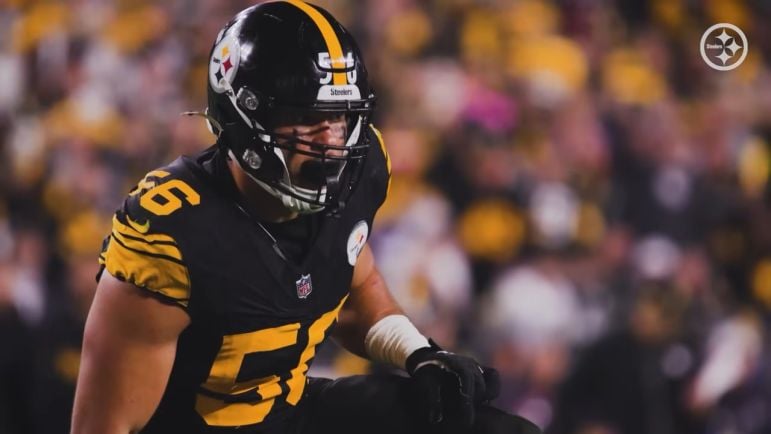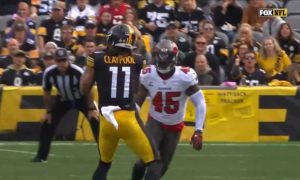Player: OLB Alex Highsmith
Stock Value: Up
Reasoning: Although he didn’t do much yesterday in practice, Alex Highsmith has a chance of returning this week. The veteran edge rusher has missed the past two games due to an ankle injury but could provide a big boost. The Steelers have struggled to keep even two edge rushers healthy simultaneously at times this season.
Sometimes it seems like the more the Steelers attempt to insulate themselves, the more trouble they have. Look at all the inside linebackers they went through last year, or the offensive linemen this year. Fortunately, Alex Highsmith has avoided major injury, but he has dealt with multiple minor ones. Coupled with Nick Herbig spending time sidelined, this has been a trying season on the edge.
That hasn’t been great for T.J. Watt, who has logged a career-high 91 percent of the Steelers’ defensive snaps. The Steelers hoped to benefit from a deep rotation including Alex Highsmith and Nick Herbig. However, as often as not, they have only had one or the other—if either.
The good news is the Steelers appear to be on the verge of having their trio back for the first time since Week 3. Highsmith went down in that game and missed the next three while Herbig missed four games beginning in Week 6. He only returned in Week 11, just in time to replace Highsmith, injured once again.
More good news is the fact that both Highsmith and Herbig produced after returning from injuries. Herbig has a forced fumble in each of the past two games since he’s been back. Highsmith had one of the best games of his career in the game before he was injured.
But it’s got to be frustrating. Alex Highsmith has only played in six games this season with just six games left. He only missed one game in his career before this year, so this is new for him. In those six games, he does have three sacks, 10 hits, and four tackles for loss, so it’s not like he was a spectator.
As the season progresses, Steelers players’ stocks rise and fall. The nature of the evaluation differs with the time of year, with in-season considerations being more often short-term. Considerations in the offseason often have broader implications, particularly when players lose their jobs, or the team signs someone. This time of year is full of transactions, whether minor or major.
A bad game, a new contract, an injury, a promotion—any number of things affect a player’s value. Think of it as a stock on the market, based on speculation. You’ll feel better about a player after a good game, or worse after a bad one. Some stock updates are minor, while others are likely to be quite drastic, so bear in mind the degree. I’ll do my best to explain the nature of that in the reasoning section of each column.








